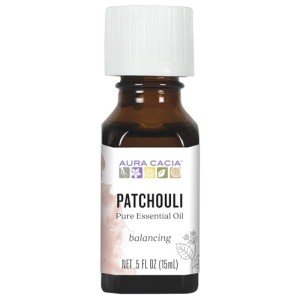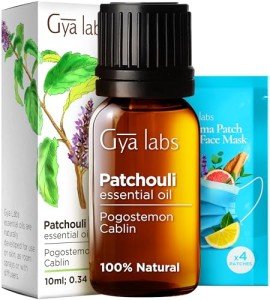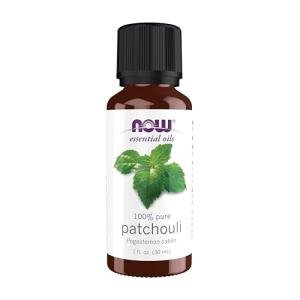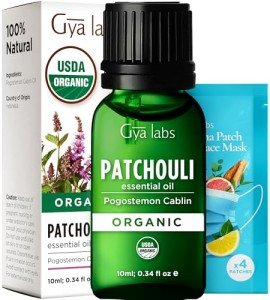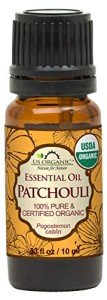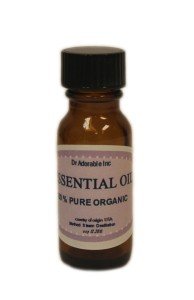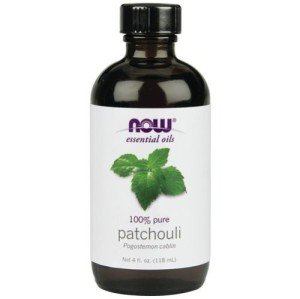The Chemical Composition of Patchouli Essential Oil
The complex scent and properties of patchouli essential oil are due to its diverse chemical composition. Some of the primary compounds found in patchouli oil include:
-
Patchoulol (15-20%): The primary sesquiterpene alcohol responsible for patchouli's characteristic earthy scent. It has anti-inflammatory, antifungal, and antibacterial properties, making it valuable in skincare products.
-
α-Patchoulene (5-10%): A sesquiterpene hydrocarbon that contributes to patchouli's woody, earthy notes. It is also known for its potential to support skin healing.
-
Bulnesene (5-10%): This compound is known for its ability to soothe irritated skin and promote skin regeneration, making it particularly beneficial in cosmetic formulations.
-
Norpatchoulenol (4-6%): A sesquiterpene alcohol that enhances patchouli's anti-inflammatory and antiseptic qualities.
-
Pogostol (3-4%): Another important sesquiterpene alcohol that adds to patchouli's therapeutic benefits, particularly in skin health and inflammation reduction.
-
Caryophyllene (2-3%): A common terpene found in many essential oils, including patchouli. Caryophyllene is known for its anti-inflammatory and analgesic properties, offering relief for conditions like arthritis and skin irritation.
-
Linalool (1-2%): A common compound in many essential oils, linalool is known for its calming and soothing properties, which contribute to patchouli's relaxing effects.
Together, these compounds contribute to patchouli's versatility and effectiveness in skincare and cosmetic products. Its anti-inflammatory, antifungal, antimicrobial, and skin-healing properties make it an excellent choice for various personal care applications.
Benefits of Patchouli Essential Oil in Handmade Soaps and Cosmetics
1. Skin Health and Healing
Patchouli essential oil has long been used in treating various skin conditions, including acne, eczema, and psoriasis. Its antibacterial and antifungal properties help cleanse the skin, preventing infections and promoting healing. The oil's ability to stimulate new cell growth makes it especially effective for healing scars, stretch marks, and other skin imperfections.
In handmade soaps, patchouli oil can help soothe and balance oily or acne-prone skin. Its anti-inflammatory properties can calm irritated skin, while its astringent qualities help tighten pores. When added to lotions, serums, and creams, patchouli oil provides a calming, rejuvenating effect on the skin.
2. Aromatherapy and Relaxation
Patchouli's rich, grounding scent is widely used in aromatherapy for its calming and stress-relieving effects. It helps reduce anxiety, improve focus, and promote emotional well-being. In handmade soaps, patchouli’s soothing aroma can create a serene, relaxing bath experience, perfect for unwinding after a long day.
3. Anti-Aging Properties
The regenerative properties of patchouli essential oil make it an excellent addition to anti-aging skincare products. Patchouli oil promotes the growth of new skin cells, which helps to reduce the appearance of fine lines and wrinkles. Its ability to improve skin elasticity and texture can leave the skin looking youthful and vibrant.
In cosmetics, patchouli is often paired with other essential oils such as lavender, frankincense, or geranium to enhance its anti-aging effects. It is commonly found in serums, facial oils, and night creams aimed at rejuvenating and firming the skin.
4. Antiseptic and Anti-Inflammatory Effects
Patchouli oil is known for its antiseptic and anti-inflammatory properties. It can be used to treat cuts, bruises, and other minor skin injuries, helping to reduce swelling and prevent infection. When incorporated into handmade soaps, patchouli oil provides an additional layer of protection against harmful bacteria and fungi, promoting overall skin health.
Using Patchouli Essential Oil in Handmade Soaps
When adding patchouli essential oil to handmade soaps, it is typically used in the following ways:
-
Cold Process Soap: Patchouli essential oil is added to the soap batter at a temperature of around 110°F (43°C), ensuring that the therapeutic properties of the oil are preserved. Typically, 0.5 to 1 ounce of patchouli oil is used per pound of soap base.
-
Melt and Pour Soap: In this method, patchouli oil can be added once the soap base is melted and slightly cooled, usually at around 120°F (49°C). As the soap sets, the scent of patchouli lingers beautifully.
Patchouli oil blends well with other essential oils, such as lavender, citrus oils (like orange or bergamot), or other earthy scents like sandalwood, giving soap makers flexibility in creating unique blends that suit their customers’ preferences.
Precautions and Considerations
While patchouli essential oil is generally safe for most skin types, it’s always a good idea to perform a patch test before using any product containing essential oils. Some individuals with sensitive skin may experience irritation. Patchouli oil should be used with caution during pregnancy, especially in the first trimester, as it may have mild uterine stimulant effects.
Conclusion
Patchouli essential oil is an incredibly versatile ingredient in handmade soaps and cosmetics. Its complex chemical composition, including compounds like patchoulol, caryophyllene, and linalool, contributes to its anti-inflammatory, antifungal, antibacterial, and soothing properties. Whether you're looking to promote skin healing, reduce the signs of aging, or create a relaxing, aromatic experience, patchouli oil is an excellent choice. By incorporating patchouli into your skincare formulations, you can harness the power of nature to nurture, protect, and rejuvenate your skin.
